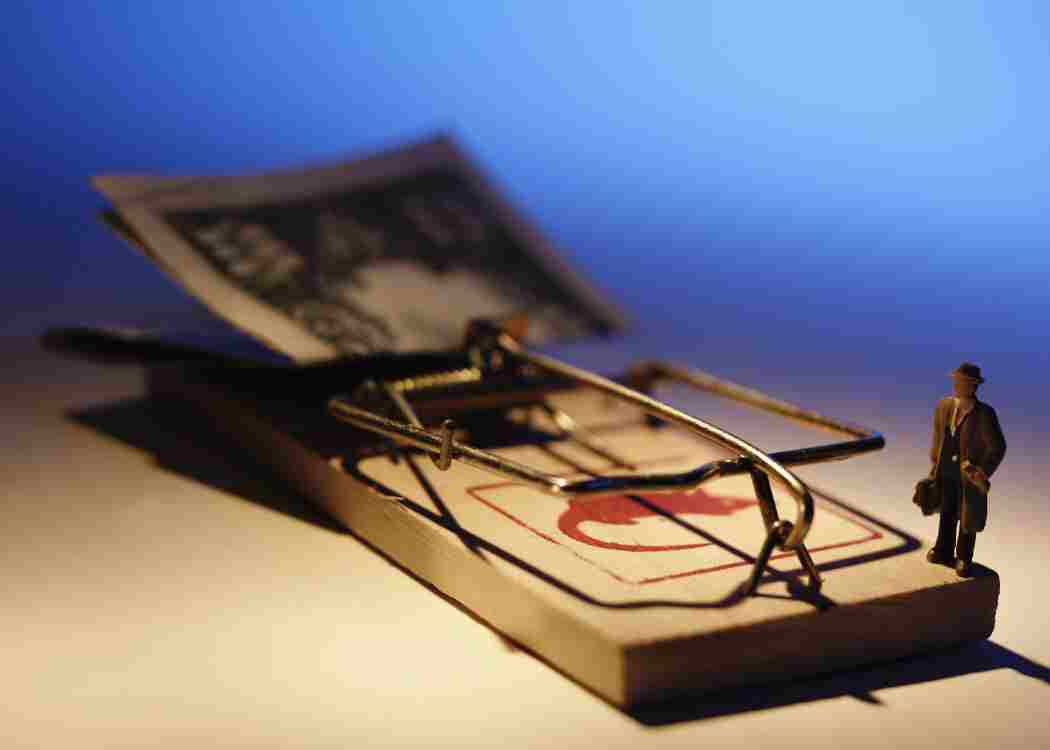Living Frugal
How much is too much debt?

How much is considered to be too much debt? Any debt is too much to be perfectly honest with you. That's how the whole cycle of debt starts. You make an itty-bitty purchase and another and another.......and the next thing you know you have thousands of dollars in debt on a credit card. What's wrong with having debt, doesn't everybody have it?
Let me give you 5 things that happen when you have too much debt. Give these things some thought and don't wake up one day and think "uh-oh how did I get here?"
Debt enslaves you
Paying a monthly debt payment reduces the amount of money you have to spend, not to mention the money you aren't contributing to your retirement account. Since you have the monthly debt payments you can't take the trip you want or buy your family the gifts you so want to give them. The more debt you have, the bigger the monthly payments will be and the results are less spending money - bottom line.
Debt "ain't" free
Spending on a credit card feels "free" until the bill comes. You get the emotional high you need from buying new things. This turns into a vicious cycle that continues to snowball. You pay interest for every debt you create. The higher the interest rate the more you pay for the debt. The higher the debt, the more interest you pay. Are you starting to see the cycle here? You can't get debt freedom until you stop and reverse the cycle. Lifestyle change can be hard, I understand but it's worth it.
There is an exception to the "debt ain't free" rule. There are such things as an interest-free loan or credit card promotion. You need to be very careful with either of these. Both are few and far between and both can entice you to "pay for it later" when you really can't afford it. If you've had problems managing money in the past, I wouldn't recommend either of the above. Both lead to too much debt.
With Debt, you're counting on tomorrow
When you charge something on your credit card or take out a loan, you are borrowing from the future. You are borrowing from the money you hope to make. What if you lose your job or get sick and are out of work for a while? Is it really worth paying for something you've already used and have no idea what you are even paying for? That's part of the vicious cycle. Don't fall into this trap, it's hard enough to pay debts but to have debt payments and have no idea what it was for, makes it that much tougher to pay.
Debt will impact your health
Debt will lead to worry and anxiety, it's part of the cycle and it's an automatic human reaction to too much debt. Worry and stress creates all sorts of medical issues such as ulcers, depression and eventually a heart attack. Debt creates more debt, now you have too much debt along with your medical bills created by the stress of your debt.
With Debt, you pay more
If you charge $3,000 on your credit card at 9.99% and plan to pay it off in 24 months, your payment is 138.42 every month. At the end of 24 months, your $3,000 item actually cost you $3302.08. However, if you want to save 138.42 every month, you could pay cash for the item and had an extra $302.08 in your pocket. If you charge it, you gave the extra money away.......it's just that simple.
The Morale of the Story
It is never too late to start your debt elimination plan. You want debt freedom and now is the time to incorporate debt management into your lifestyle so you can get out of debt.








